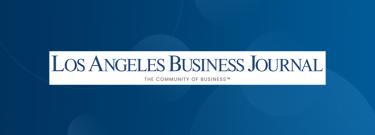Korean language study programs should serve as gateway to culture, history
Korean language study programs should serve as gateway to culture, history
Sejong City, Korean education center in LA sign agreement to promote Hangeul in US
By Jung Da-hyun
LOS ANGELES — As interest in Korean culture grows in the United States, so does the demand for learning the Korean language. However, some believe the focus should be on using the language to explore and understand Korean culture more deeply.
According to the Korean Cultural Center Los Angeles (KCCLA), the number of participants in their Korean language classes has been steadily increasing.
In 2007, there were six online classes, each with 200 participants. Recently, this has expanded to nine classes, each accommodating 350 participants, with over 600 more people on the waiting list.
"With our online classes, students can join from areas without Korean Cultural Centers or language education institutions," said Roh Seung-hoan, the general manager of the Korean language program at the KCCLA.
Currently, students from 34 states, including Alaska, Hawaii and Florida, are participating in the program.
"There are 70 to 80 percent of non-Korean heritage students, and their interest in culture is usually the primary reason for learning Korean, rather than seeking a practical advantage," Roh said.
Most students are drawn to the language through an interest in Korean culture, such as music and dramas, although specific interests varies by age group.
People in their teens and 20s are primarily attracted to trendy content like K-pop and K-dramas, while individuals in their 30s and 40s show a greater interest in K-beauty and traditional performances. Additionally, there is a significant interest in Korean cuisine across various age groups.
Jung Sang-won, consul and director of the KCCLA, emphasized that institutions should prioritize the sustainability of K-content.
"There are many startups and creators developing new content that showcases Korean culture. We aim to support them in diversifying cultural assets," Jung said.
Los Angeles City College (LACC) offers a comprehensive program for learning Korean, providing various levels of Korean language instruction, from beginner to advanced, both online and offline. LACC is the only community college that offers an associate degree in Korean and Korean literature.
In addition to language courses, the college also provides classes on Korean history and culture.
"I had a chance to study Korean civilization, pop culture and conversational Korean, which allowed me to understand the culture from a more diverse perspective," said Isabella Borja, a 26-year-old student at LACC’s Korean program.
LACC’s Korean program authorities observed that, unlike the decline in interest for most second languages, demand for Korean courses is increasing.
"The COVID-19 pandemic influenced people in the U.S. as they were exposed to many Korean dramas and content during the lockdown," said Mickey Hong, director of the Korean program at LACC.
"I also watched a lot of Korean dramas on Netflix during the pandemic, which motivated me to learn the language and culture more deeply," Isabella added.
Efforts to promote Korean language in U.S.
Authorities from the Korean Education Center in Los Angeles (KECLA) stressed that Korean should be approached as a means of communication, rather than merely as a foreign language subject.
"In Korea, dual language education is often focused on providing language instruction to the children of migrant workers," said Kang Jeon-hoon, president of KECLA.
"However, effective language education requires a more complex approach."
"Recently in the United States, the push for dual language capacity extends beyond immigrants to everyone, highlighting the importance of bilingual education in a global context," added Son Min-hye, an assistant professor in the Division of Teacher Education at California State University.
The KECLA also emphasizes the promotion of Korean education through programs that include Korean culture and history, utilizing various educational content in Korean.
As of the first semester this year, 82 schools, including LA Public Schools, will offer 343 classes with 8,701 students enrolled in Korean language courses, thereby doubling from a decade ago. The KECLA projects that enrollment will reach 9,000 students by the end of the fall semester.
Sejong City, aiming to become a global hub of the Korean language, alphabet and culture, recently visited key Korean education sites in Los Angeles.
The city government signed a memorandum of understanding with three major institutions — KCCLA, LACC and KECLA — focusing on exchanging resources and developing initiatives to promote the Korean language worldwide.
"We are committed to establishing the city as the epicenter for the global dissemination of the Korean alphabet, language and culture," said Sejong Mayor Choi Min-ho.
"Through this agreement, we will work together to elevate the Korean language and culture to mainstream status globally."


